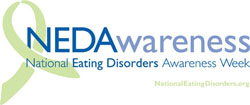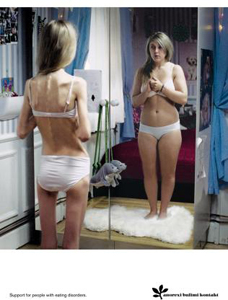On 20/20 this past Friday night, they featured a new kind of an obsessive compulsive disorder called “orthorexia.” Orthorexics are individuals who take eating healthy to an extreme. They avoid eating not just a few things like trans fats or meat, but thousands of different kinds of food all in the name of health. It is a psychological addiction to food, but it differs from anorexics, who have a pathological fear of being fat. Orthorexics’ weight often plummets to anorexic levels. But they differ from anorexics because they know they are thin and want to gain weight.

It is no question that we are a culture that is extremely health conscious. We spend billions of dollars each year on diet products, books and supplements. But what makes orthorexia different than just abstaining from dairy, like vegans do, or not consuming any refined sugars is that orthorexics are obsessed with keeping their food pure. They avoid all processed food in addition to many fresh fruits and vegetables if they are not organic or certified by certain organic standards. Most of their day is either spent preparing their own food or thinking about food. Their obsession affects all aspects of their lives, particularly their relationships, as activities like family meal times and dining out are soon eliminated as their pursuit to be pure takes over.
No one way of eating is shown to be a leading culprit in enabling someone to become orthorexic, but raw foodists were associated with a higher risk of developing orthorexic tendencies.
The result is that most orthorexics become dangerously thin, because as the list of foods they can eat becomes smaller and smaller, so does their body weight. One of the orthorexics featured on the ABC program died when her weight plummeted too low to support her body from functioning.
As someone who is deeply involved in the yoga community, I have encountered scores of people who have let their desire to be healthy spiral out of control into a full-fledged addiction and obsession. I once met a man who only ate beets and another who only ate one meal a day which was the same day after day. Looking at some of these extreme cases, vegetarianism is a soft way of eating.
I am sure that we have all met people who have quirky or bizarre eating habits or dietary preferences. But what makes orthorexia so alarming is that as our awareness of and preoccupation with health increases, the more likely it is that we will see more cases similar to those shown on last week’s television show. To learn more about this disorder and to educate yourself on some of the telltale signs of orthorexia, watch this video.
Learn more about Orthorexia and how to treat it, in this book Health Food Junkies.





